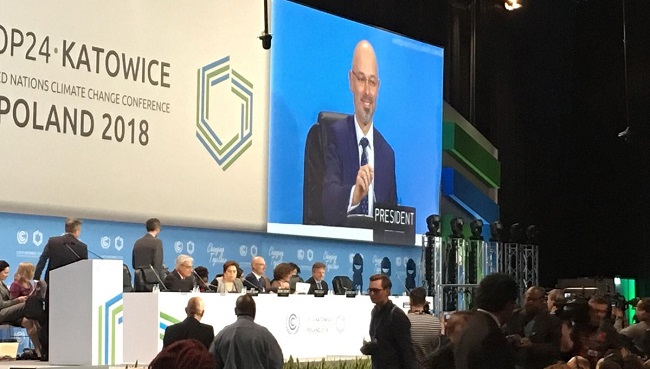Civil society organisations have alleged that Polish authorities denied entry and/or deported at least 14 of their colleagues due to attend the United Nations climate talks in Poland.

The alleged deportations follow the enactment of national legislation earlier this year passed by the Polish Government in relation to the 24th Session of the Conference of the Parties to the United Nations Framework Convention on Climate Change (UNFCCC COP24) currently underway in the southern city of Katowice, from December 2 to 14, 2018. Several United Nations human rights experts have publicly questioned the compatibility of the law with international human rights standards.
“The fact that these are not isolated instances are extremely worrying and we view the actions by the Polish border authorities in an extremely serious light,” said Dr. Stephan Singer, Interim Executive Focal Point at Climate Action Network (CAN). CAN is a network comprising over 1,300 organisations working in over 120 countries. Under its network, CAN reportedly convenes the largest share of environmental non-governmental organisations under the UN climate convention.
“The full and effective participation by civil society is entrenched in the Convention and, in fact, is imperative in our efforts to urgently transition to a new climate regime.”
Several civil society organisations have registered strong objection to the incidents that occured since the beginning of the UN conference.
“We strongly condemn the denial of entry and deportation of colleagues who have not been allowed into Poland in order to take part in COP24. From what we understand the reasons for refusing entry are due to allegations that they are a ‘threat to national security.’ These staff members and volunteers are individuals committed to tackling the climate crisis the world faces through campaigning for sustainable solutions,” said May Boeve, Executive Director of 350.org.
“It is the belief of all of us at 350.org, and our partners, that the biggest threat that we face to our international and national security is that of not tackling the climate crisis and taking the urgent and necessary action to leave fossil fuels in the ground now. This is underscored in the recent IPCC Special Report on 1.5C Global Warming.
The voices of those denied entry to COP24 are essential to the unfolding climate talks and it is unacceptable that their presence at the climate talks should be impeded in this way. Ongoing restrictions on civil society will not stop a resilient climate movement.”
Greenpeace Poland Office Director, Bohdan Pękacki, said: “As host of the most important climate summit since Paris, Poland has the eyes of the world on it and the question is, what sort of host does Poland want to be? Will it embrace the demands of people demanding action and allow their voices to be heard or silence them through denied entry?”
Friends of the Earth Germany’s Ann-Kathrin Schneider said: “We are working together with civil society groups from all over the world in Katowice to hold our leaders accountable and demand a response to the climate crisis. We are extremely worried about the decision of Polish authorities to deny individuals from our partner group entry into the country. We demand that everybody who wants to come to the climate conference is allowed into the country to enact their right to participate in peaceful civil society actions for the climate.”
Iryna Stavchuk, Executive Director of the Centre for Environmental Initiatives “Ecoaction” (Ukraine), said: “Participation of representatives of civil society organisations in climate negotiations is crucial, as they act as important leverage in decision-making. All this is to make sure that achievement of Paris Agreement goal to keep global warming at 1,5 – 2 °С level becomes a reality. We find the actions of Polish authorities denying entry of peaceful activists unacceptable.”
Wendel Trio, Director Climate Action Network Europe, said: “It is appalling and a disgrace that one of our collaborators who successfully co-organised a March of 65.000 people in Brussels last week has been denied entry into Poland. People are demanding climate action from our governments and should be supported for doing so. The Polish government is afraid to see the reality that also they need to act.”
